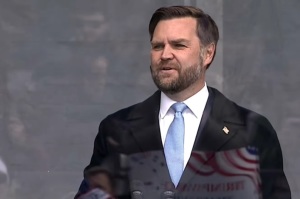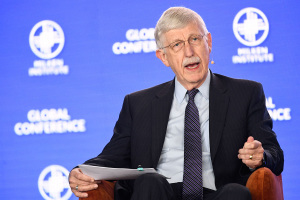Supreme Court tosses lower court ruling against Christian postal worker punished for not working Sundays

The United States Supreme Court has vacated an earlier lower court ruling against a Christian postal worker who had been forced to work Sundays, which went against his sincerely-held religious beliefs.
In a unanimous decision released Thursday morning in the case of Greg Groff v. Louis DeJoy, the high court decided to vacate a circuit court ruling against Christian postal worker Greg Groff and remanded the case for further proceedings.
A key factor was that the Supreme Court concluded that the U.S. Court of Appeals for the Third Circuit needed to have a better definition for what constituted “undue hardship” on an employer being asked to accommodate an employee’s religious practices.
Justice Samuel Alito authored the high court's opinion, concluding that “courts must apply the test in a manner that takes into account all relevant factors in the case at hand, including the particular accommodations at issue and their practical impact” on an employer.
“What is most important is that ‘undue hardship’ in Title VII means what it says, and courts should resolve whether a hardship would be substantial in the context of an employer’s business in the commonsense manner that it would use in applying any such test,” wrote Alito.
“An employer who fails to provide an accommodation has a defense only if the hardship is ‘undue,’ and a hardship that is attributable to employee animosity to a particular religion, to religion in general, or to the very notion of accommodating religious practice cannot be considered ‘undue.’”
Alito went on to note that “it would not be enough for an employer to conclude that forcing other employees to work overtime would constitute an undue hardship,” adding that considering “other options, such as voluntary shift swapping, would also be necessary.”
Groff quit working for USPS in 2019 after about seven years of service because the Quarryville Post Office in Lancaster County, Pennsylvania, required him to deliver Amazon packages on Sundays.
While USPS had initially granted Groff’s request, allowing him to work additional shifts on other days of the week instead, his boss later said he had to work on Sundays despite his beliefs.
Groff sued, arguing that the postal service requiring him to work Sundays or quit violated Title VII of the Civil Rights Act of 1964, namely religious freedom protections in the workplace.
Last May, a three-judge panel for the Third Circuit ruled against Groff, with Circuit Judge Patty Shwartz, an Obama appointee, writing in the court opinion that accommodating Groff’s request "would cause an undue hardship" for the postal service.
"Exempting Groff from working on Sundays caused more than a de minimis cost on USPS because it actually imposed on his coworkers, disrupted the workplace and workflow, and diminished employee morale," the ruling read.
Randall Wenger of the Independence Law Center, which also supported Groff, said, “Observing the Sabbath day is critical to many faiths — a day ordained by God. No one should be forced to violate the Sabbath to hold a job.”
Groff appealed the decision and the Supreme Court announced in January that the justices would hear an appeal in the case, with oral arguments taking place in April.
A significant point of debate during the oral arguments was the 1977 Supreme Court decision Trans World Airlines, Inc. v. Hardison, in which the high court ruled 7-2 that TWA had not violated Title VII when it refused to provide a Saturday sabbath exemption for an employee because it would have caused "undue hardship" for the company.
Chief Justice John Roberts mentioned the changes in religious liberty case law since Hardison was decided, citing recent cases that had broadened religious accommodations in other areas.
"There really is no Establishment Clause problem if you make accommodations for people's religious belief," said Roberts during oral arguments in April. "So, if you're going to look at this under current law, it’s not clear that those cases would come out, that Hardison would come out the same way."



























